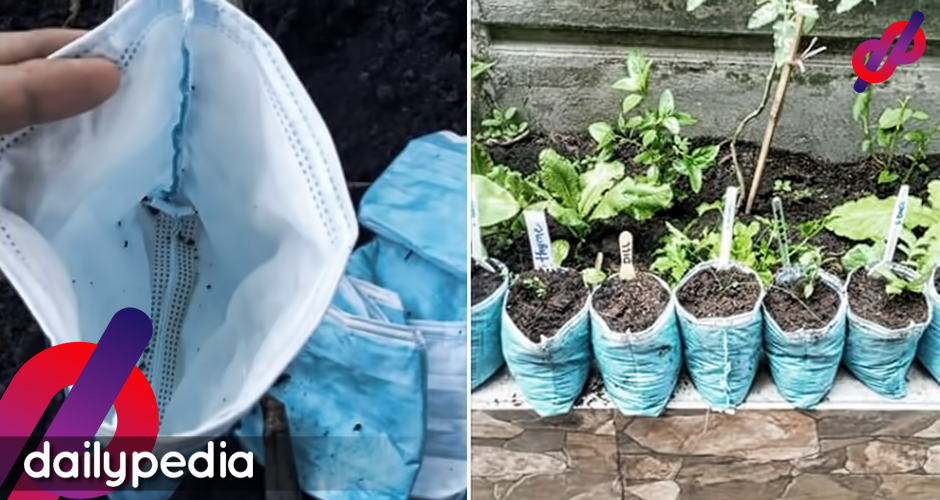A Facebook post has drawn concerns as it promotes turning ‘used’ face masks into seedling bags.
Tagani Philippines warned about the danger what this ‘recycling’ idea can impose on the soil, gardener, and plants.

They said that even though we garden on soil, that doesn’t mean that it is already ‘dirty’. Cleanliness and sterilization of materials and tools are crucial.
“A disposable face mask is a medical waste, it filters the air for you to breathe. It captures and traps bacteria, viruses, fungi, and other pathogenic organisms which can affect your health. These of course will culture in the mask over periods,” Tagani added.
DO NOT DO THIS. There’s a reason why we sterilize farming tools and materials especially when growing seeds and seedlings. Not because you garden in the soil means it should also be dirty and unsanitized. [A THREAD]
Photos from Eva Eva/PNP Crime Lab in Davao pic.twitter.com/cwfavDn0H2
— Tagani (@TaganiORG) July 18, 2020
Tagani then explained the negative effects it can bring to the soil, gardener, and plants.
A face mask that may contain pathogens, when exposed to nutrient-rich soil may cause contamination. This put the gardener’s health at risk.
“When exposed in nutrient-rich soil, these pathogens will thrive and it exposes the gardener to the contamination—such as, but not limited to, SARS-CoV-2 (known to thrive in surfaces for days) which brings Covid-19,” they said.
It may also cause your plants to die. Face masks that may contain pathogens will expose your plants and the whole garden to more pests and diseases.
“These used face masks can expose your plants and whole garden to more pests and diseases.”. they said.
The composition of face masks is also too porous which may saturate too much and tear eventually.
“It is too porous for a seedling bag. It will absorb too much moisture and saturate to a point that the roots and soil will tear it apart. Not recommended even if it is unused.”
They suggest using food-grade seedling bags which are cheaper and harmless.
“Seedling bags are cheaper than face masks. I cannot stress this enough. Just buy a food-grade seedling bag and don’t do this for the sake of being innovative. There’s no point in reusing these—it is more harmful to the environment!” they suggested.
Tagani Philippines, which name came from the Filipino word “tag-ani” meaning “harvest season”, is a “hyper-local supply chains by creating farms in local communities and connecting them through e-commerce”. They envision to be Southeast Asia’s largest digital farm network.


